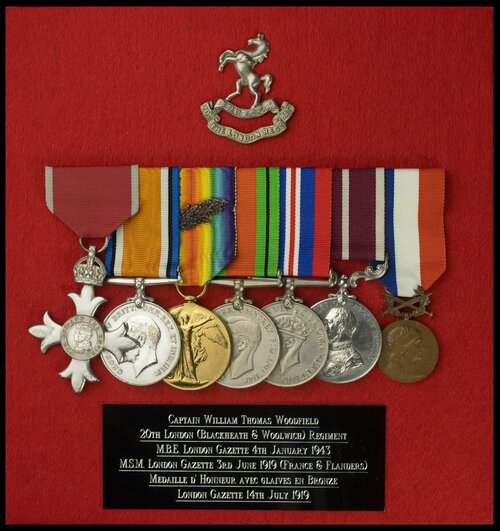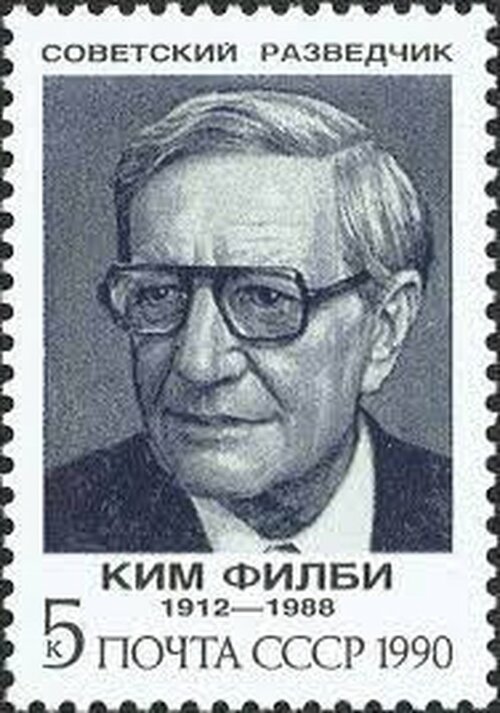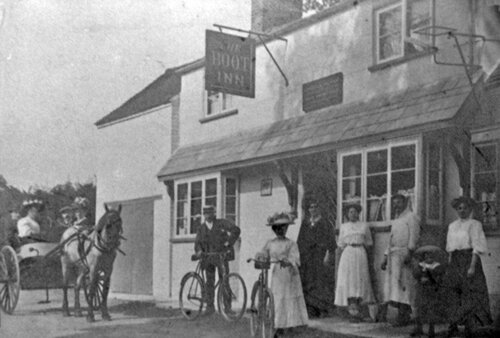Auction: 22101 - Orders, Decorations and Medals - e-Auction
Lot: 432
'It was at about this time that I nearly got into serious trouble. I have mentioned that Central Registry, housing the SIS archives, was next door to Glenalmond. Bill Woodfield, who was in charge of it, had become quite a friend of mine. I have been told that magenta is the only colour that the rainbow lacks.
If so, Bill's face would be out of place in the rainbow. He had a liking for pink gins, which I shared, and a prudish appreciation of dirty stories. We used to foregather often to discuss office politics, of which he had had a long experience. This friendly connection paid off, and I was usually in a position to get files rather more quickly and easily than many of my colleagues. Bill was seriously understaffed, and the people he had were often ill-trained.'
Kim Philby speaking of his friendship with Captain W. T. Woodfield in an extract from My Silent War
An exciting M.I.6., O.B.E. group of seven awarded to Captain W. T. Woodfield, who fought with the London Regiment until March 1917 when he began to work as an Intelligence Officer, a field he remained in until 1945, during which he worked with M.I.6., took charge of the S.I.S. archives and struck up a friendship with Kim Philby
The Most Excellent Order of the British Empire, Civil Division, 2nd Type breast Badge, silver-gilt; British War and Victory Medals, with M.I.D. oak leaves (5283 A. W. O. Cl. 2 W. T. Woodfield 15 London R.); Defence and War Medals 1939-45; Meritorious Service Medal, G.V.R. (634842 Pte. A. Q. M. Sjt - W. T. Woodfield. 20/Lond: R.); France, Republic, Medaille D'Honneur avec glaives en bronze, mounted for display on felt backing, with a nameplate and cap badge, minor contact wear, and slight edge bruising, very fine (7)
O.B.E. London Gazette 4 January 1943.
M.S.M. London Gazette 3 June 1919.
Medaille D' Honneur London Gazette 14 July 1919.
A Regimentally unique combination and rare to a Non-Commissioned Officer.
William Thomas Woodfield was born at was born at Birmingham on 4 January 1890, the son of john and Frances Woodfield of 104 Wheeler Street, Birmingham. Working as a clerk prior to attesting on 29 February 1916, he was posted to 2/15th Battalion, London Regiment on 1 March. Entering the war in France on 6 July 1916, he was transferred to 2/20th London Regiment on 23 July and on to 1/20th London Regiment on 13 December. Promoted Lance Corporal on 10 February 1917, later transferred to the 1/20th London Regiment's Base Headquarters he was seconded for temporary Intelligence Duties. Advanced Corporal on 7 February 1918. Woodfield was further promoted Quartermaster-Serjeant on 19 October 1918 to complete the establishment of Intelligence General Staff G.H.Q. and posted back to England on 10 March 1919. Discharged here to the Z Class Reserve, it appeared that his career in Intelligence was at an end.
Woodfield's work after the end of the Great War is obscure, he seems to have served with special branch for a time. His other role was with the 'Passport Control Department', often used as a front by the Secret Intelligence Service. Indeed the term 'Passport Control Officer' became synonymous with operatives during the inter-war years. During this time Woodfield was listed as a 'Civilian Assistant and a list of the countries in which he specialised notes 'France. Switzerland and Northern Italy'.
With the outbreak of the Second World War, Woodfield was officially commissioned on 2 September 1939 as a 2nd Lieutenant. Unlike many of his associates at the Passport Control Department he was not recruited into Naval Intelligence for work at Bletchley Park. Instead Woodfield was appointed Head of Registry for the Secret Intelligence Service Archives with the rank of Captain. It seems that it was while performing his role here that he met Kim Philby, double agent and the best known member of the 'Cambridge Five'. Philby used Woodfield's appreciation for pink gin and dirty stories to befriend him and soon began using their connection to his advantage, digging into the classified archives and even taking documents home with him. He recounts during this time that he had
'come across the source-book for the Soviet Union, I found that i consisted of two volumes. Having worked through them to my satisfaction, I returned them to Registry in the normal way'.
Later Woodfield called Philby and asked after the second volume of source-book, after a desperate search in which he couldn't find the missing document Philby asked what the procedure was going forward. Woodfield informed him that the normal procedure was to report him immediately to the Chief. This seriously worried Philby as his activities as a double agent would be been threatened by any scrutiny which might have been engendered as a result. His memoire My Silent War takes up he story:
'Bill telephoned me to offer a "full, personal apology." It seemed that one of his secretaries handling the source-books, wishing to save shelf space, had amalgamated the two volumes into one. She had then come over queer, and gone home with a severe bout of flu. She had only just got back to the office and, on being tackled by Woodfield, had immediately remembered what she had done. I accepted the apology gracefully, and suggested meeting again that evening. We did so, and drowned the painful memory in another flood of pink gin. I remember thinking for a brief moment, duly regretted next morning, that magenta was my favourite colour.'
It was a close call for Philby, one which may have given Woodfield cause to curse in later life, had he known how close he came to casting suspicion upon a genuine mole in the service. Woodfield continued to be employed with the Secret Intelligence Service until 24 June 1945 when he was transferred to the London District Reception Depot, remaining there until 11 July 1945 when he was released from the service.
After the War Woodfield, then known as 'Woody' came to live at Winslow were interesting stories were told about his exploits during the war. These included rumours of his involvement in the planning and execution of Operation 'Mincemeat'. When he reached an advanced age 'Woody' moved from his cottage to a pub called the 'Devil in the Boot'. He died here on Christmas Eve 1973 of Congestive Heart Failure brought about by Bronchitis; sold together with a copy of Kim Philby's My Silent War as well as copied research including service records, London Gazette entries, typed research and an email from the son of the recipient's landlord in Winslow talking about his old age and the stories he told.
Subject to 20% VAT on Buyer’s Premium. For more information please view Terms and Conditions for Buyers.
Sold for
£1,400
Starting price
£750









